EU Monitor 9 February 2022 - In 6 weeks, hospital pharmacists will meet in Vienna for EAHP2022
The EAHP EU Monitor is a regular round up of news relevant to hospital pharmacy in Europe.
EAHP’s in-person congress: only six weeks away

Do you want to learn more about the changing roles of the hospital pharmacy profession? Don’t miss EAHP’s 26th Congress organised as an in-person event in Vienna, Austria from the 23rd to the 25th of March 2022. EAHP’s Scientific Committee, under the lead of Thomas De Rijdt, has prepared an interesting and innovative Congress programme that caters to the educational needs of the profession and takes into account the latest developments in hospital pharmacy.
Different seminars will be hosted. They will provide attendees with insights on for example working with limited resources, the role of the hospital pharmacist in disaster management, waste reduction, gene and cell therapies, compounding for paediatrics and medication safety. Hands-on workshops will focus on teamwork in the hospital, pharmacoeconomics, quality improvement and quality assurance, the prescribing cascade and patient-centred medication reviews. The Student Programme will explore contemporary ethical challenges in hospital pharmacy practice, while the Pharmacotherapy Session will be looking at advances in heart failure pharmacotherapy. Participants can also join three different keynotes, wander around the exhibition area and listen to the oral presentations of the poster award nominees.
If you have not booked your ticket for Vienna, hurry and join us in six weeks.
Register for EAHP’s 26th Congress HERE
Learn more about the programme of EAHP’s 26th Congress HERE
Coronavirus information for Austria: please refer to the below webpages for information as these are updated on a regular basis.
- Find the latest Coronavirus information for Vienna on the following official online tour guide of the City of Vienna
- You can find more information for Austria on this on the website of the Austrian Federal Ministry of the Interior
- Travel to Austria Meeting related updates
The Clinical Trials Information System is live
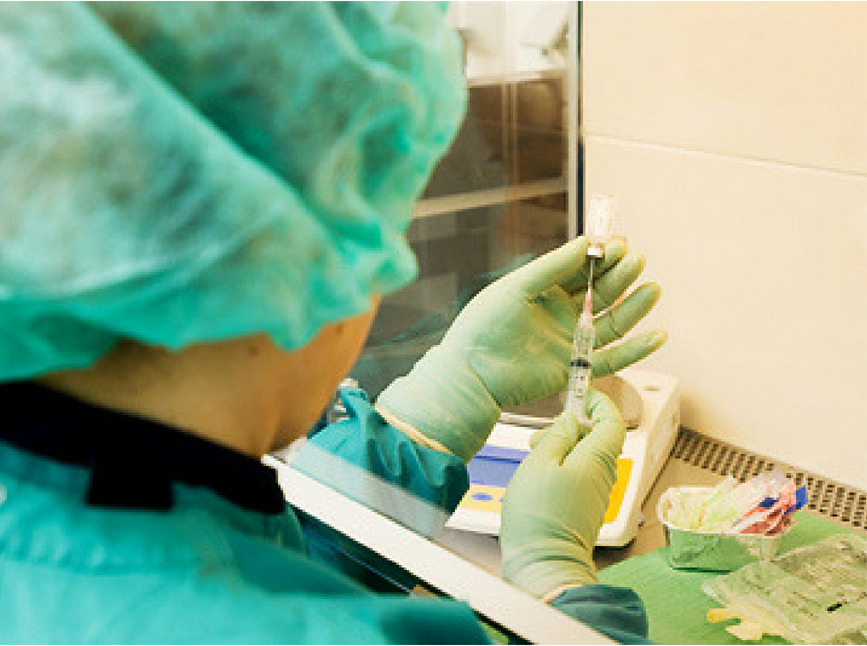
On the 31st of January 2022, the Clinical Trials Information System (CTIS) went live. CTIS is the backbone of the Clinical Trials Regulation that will harmonise the assessment and supervision of clinical trials in the European Union (EU) and the European Economic Area (EEA).
Clinical trial sponsors and other organisations involved in running clinical trials can now apply to run a trial and manage an ongoing trial in up to 30 countries in the EU and EEA via the CTIS. Patients, healthcare professionals and the general public can also access the public Clinical Trials website. When clinical trial applications have been submitted through CTIS and authorised by Member States, they will be openly accessible via the “Search clinical trials page”. The public searchable database will gradually contain more information as sponsors and Member States use it to initiate and oversee clinical trials.
The Clinical Trials Regulation and CTIS represent one of the most ambitious regulatory projects of the European medicines regulatory network. The development of CTIS involved the joint effort and dedication of Member State national competent authorities and ethics committees, clinical trial sponsors representing commercial enterprises (including SMEs) and academia, representatives of patients and healthcare professionals and members of the general public, staff of the European Medicines Agency (EMA) and contractors, the European Commission and the Heads of Medicines Agencies (HMA). The Clinical Trials Regulation and CTIS will strengthen clinical trials in the EU, ensuring better outcomes for patients and supporting the attractiveness of the European Union as a location for clinical research.
Learn more about clinical trials in the EU HERE
Report on antimicrobial resistance surveillance in Europe published
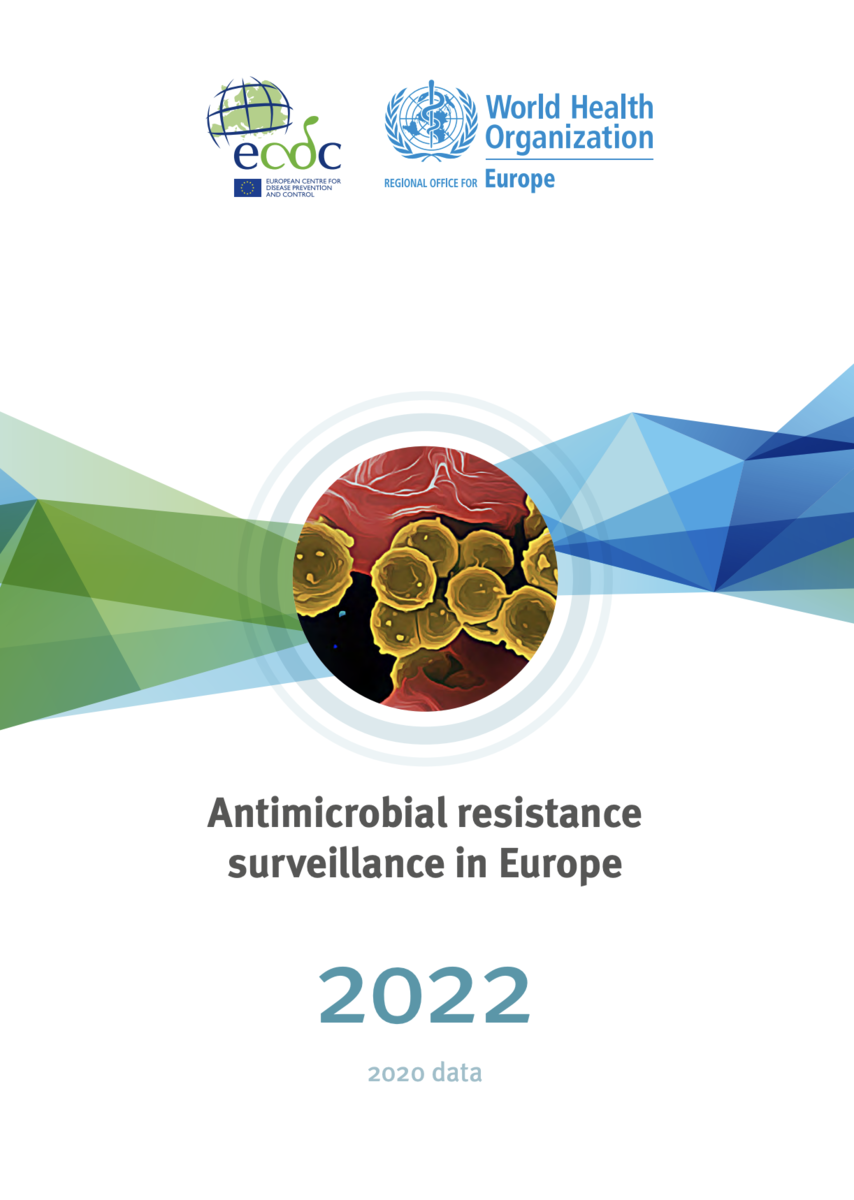 The European Centre for Disease Prevention and Control (ECDC) and the World Health Organization (WHO) Europe have released a joint report covering antimicrobial resistance (AMR) surveillance data in 2020. The report provides a pan-European overview showing that each year more than 670 000 infections are due to bacteria resistant to antibiotics and approximately 33 000 people die as a direct consequence.
The European Centre for Disease Prevention and Control (ECDC) and the World Health Organization (WHO) Europe have released a joint report covering antimicrobial resistance (AMR) surveillance data in 2020. The report provides a pan-European overview showing that each year more than 670 000 infections are due to bacteria resistant to antibiotics and approximately 33 000 people die as a direct consequence.
The report presents a regional and European Union/European Economic Area (EU/EEA) overview, including traffic light maps for priority drug-bug combinations of public health relevance, as well as 42 country and area profiles. This marks an important step in further harmonising the AMR reporting in the European Region. Results presented in the report show clearly that AMR is widespread in the WHO European Region. While assessing the exact magnitude of AMR remains challenging in many settings, the presence of specific AMR patterns across clinical settings covered by the surveillance networks is apparent.
As antimicrobial-resistant bacteria cannot be contained within borders, these results underline the need for concerted action to combat AMR throughout the WHO European Region. Resistance to last-line antibiotics is a major issue. When these antibiotics are no longer effective, there are very limited treatment options that might not work in all situations, sometimes leading to fatal outcomes. Resistance to last-line antibiotics also compromises the effectiveness of life-saving medical interventions such as cancer treatment and organ transplantation. Robust investments in interventions to address AMR are urgently needed and would have a significant positive impact on population health and future healthcare expenditures in the region.
Access the report HERE
Role of EMA for crises strengthened
 With the Regulation reinforcing the role of the European Medicines Agency (EMA) in crisis preparedness and management for medicinal products and medical devices another important pillar of the European Health Union was erected. As part of its extended mandate, EMA will be tasked with the monitoring of events, including medicine shortages, which might lead to a crisis situation, as well as with the reporting of shortages of critical medicines during a crisis. Also, coordination of responses and shortage reporting for critical medical devices and in vitro diagnostics occurring in crisis situations will be covered, after an initial transition period.
With the Regulation reinforcing the role of the European Medicines Agency (EMA) in crisis preparedness and management for medicinal products and medical devices another important pillar of the European Health Union was erected. As part of its extended mandate, EMA will be tasked with the monitoring of events, including medicine shortages, which might lead to a crisis situation, as well as with the reporting of shortages of critical medicines during a crisis. Also, coordination of responses and shortage reporting for critical medical devices and in vitro diagnostics occurring in crisis situations will be covered, after an initial transition period.
This new Regulation becomes applicable as of 1 March 2022, except for the provisions on shortages of critical medical devices which will apply as of 2 February 2023. It turns structures and processes established by EMA during the COVID-19 pandemic into a permanent feature and adds several new tasks to the Agency’s area of work. By early 2025, a European Shortages Monitoring Platform will be set up and maintained by EMA to facilitate data collection and reporting by companies and Member States on shortages, supply and demand of critical medicines.
EMA has also been given the responsibility to coordinate EU expert panels to provide advice to Member States and the European Commission on high-risk medical devices and in-vitro diagnostic medical devices. Due to the reinforced mandate, EMA can from now on facilitate a coordinated EU-level response to health crises by:
- monitoring and mitigating the risk of shortages of critical medicines and medical devices;
- providing scientific advice on medicines that may have the potential to treat, prevent or diagnose the diseases causing those crises;
- coordinating studies to monitor the effectiveness and safety of medicinal products intended to treat, prevent or diagnose diseases related to the public health crisis;
- coordinating clinical trials for medicinal products intended to treat, prevent or diagnose diseases related to the public health crisis; and,
- transferring the expert panels of the Medical Device Regulation to the Agency.
Read the Regulation on a reinforced role for the European Medicines Agency in crisis preparedness and management for medicinal products and medical devices HERE
EMA authorisation for Paxlovid – additional information for healthcare professionals
 EMA’s human medicines committee (CHMP) has recommended authorising the oral antiviral medicine Paxlovid (PF-07321332 and ritonavir) for the treatment of COVID-19. The Committee recommended authorising Paxlovid for treating COVID-19 in adults who do not require supplemental oxygen and who are at increased risk of the disease becoming severe.
EMA’s human medicines committee (CHMP) has recommended authorising the oral antiviral medicine Paxlovid (PF-07321332 and ritonavir) for the treatment of COVID-19. The Committee recommended authorising Paxlovid for treating COVID-19 in adults who do not require supplemental oxygen and who are at increased risk of the disease becoming severe.
Paxlovid is the first antiviral medicine to be given by mouth that is recommended in the EU for treating COVID-19. It contains ritonavir, a well-known inhibitor of cytochrome P450 CYP3A (and PgP inhibitor), which may interact with other medicines leading to clinically significant reactions, including potentially life-threatening or fatal reactions, loss of therapeutic effect of Paxlovid and possible development of viral resistance. Healthcare professionals should be reminded of the warnings and advice included in the product information, in particular:
• the medicines (and also the herbal product St. John’s wort (Hypericum perforatum), that are contraindicated to be used concomitantly with Paxlovid,
• the need to review concomitant medicines before and during treatment with Paxlovid and
• the need to monitor patients for the adverse reactions associated with any concomitant medicine.
The CHMP has adopted a conservative approach and has considered all the known drug-drug interactions for ritonavir. Ritonavir is used as a long-term treatment at higher or same dose in people with HIV. In Paxlovid ritonavir is recommended for 5 days only. As further knowledge is collected from ongoing/planned investigations by the company, from academics and through its use in the clinical setting, the need to update the current recommendation on interactions will be considered. In addition, the company has provided a drug interaction tool on its website which can be accessed through a QR code included in the product information and on the outer carton.
The product information, as approved by the CHMP on 27 January 2022, pending translations and endorsement by the European Commission, is available HERE
Learn more about Paxlovid HERE
EHMA call for abstracts closes next week!
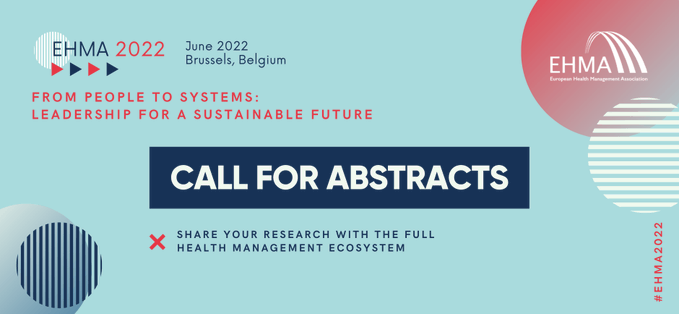 There is still time to hand in your abstracts for the 2022 Annual Conference of the European Health Management Association (EHMA) taking place in Brussels on 15-17 June 2022! You can submit your research addressing the overarching conference theme ‘From people to systems: leadership for a sustainable future’ until 14 February 2022 and present it in front of peers and experts from the entire health management ecosystem.
There is still time to hand in your abstracts for the 2022 Annual Conference of the European Health Management Association (EHMA) taking place in Brussels on 15-17 June 2022! You can submit your research addressing the overarching conference theme ‘From people to systems: leadership for a sustainable future’ until 14 February 2022 and present it in front of peers and experts from the entire health management ecosystem.
The EHMA Conference is a great platform to showcase cutting-edge research, share provocative ideas and discuss complex problems with a view to reaching implementable solutions. With the Conference being in Brussels, the voice of health managers and researchers will be amplified even more to ensure that future health policies are informed by the latest evidence-based research.
This year, abstracts are submitted under tracks: 1. Governance and leadership; 2. Management, operations, and practice; 3. Finance and economics; 4. Policy and regulations; and under topics: 1. People-centred systems; 2. Managing the digital transformation; 3. Workforce of the future; 4. Shaping sustainable systems; 5. Improving healthcare access, delivery, and outcomes.
Submit your abstract HERE
EHA initiative to understand and optimize Europe’s use of fractionated plasma, particularly immunoglobulins
 The availability of blood and blood products, particularly fractionated plasma, is under pressure. This is of concern to the European Haematology Association (EHA). EHA is contributing to mapping the demand side of the use of immunoglobulins across Europe to support adequate decision-making in times of limited supply. Hospital pharmacists are encouraged to participate.
The availability of blood and blood products, particularly fractionated plasma, is under pressure. This is of concern to the European Haematology Association (EHA). EHA is contributing to mapping the demand side of the use of immunoglobulins across Europe to support adequate decision-making in times of limited supply. Hospital pharmacists are encouraged to participate.
For this mapping, EHA supports the BEST (Biomedical Excellence for Safer Transfusion) trial, which addresses this very issue via a brief survey to hospital pharmacists. Although the BEST trial study group is not affiliated with EHA directly, some of its members are active members of our EHA Scientific Working Group on Transfusion.
Hospital pharmacists are asked to engage in the survey initiative to share insights into the situation of immunoglobulin (Ig) shortages and the decision-making process regarding Ig utilization within their hospitals. Engagement should not take longer than 15 minutes.
Learn more about the study and how to participate HERE
EDQM: Survey on the Safe Use of Herbal Products for healthcare professionals
 The use of herbal products continues to expand rapidly across the world, with many people using these products to treat a wide variety of health problems in different national healthcare settings.
The use of herbal products continues to expand rapidly across the world, with many people using these products to treat a wide variety of health problems in different national healthcare settings.
Only a minority of these herbal products are registered/authorised as medicinal products. The majority of them are readily available on the market (e.g. in pharmacies, drugstores, other retail outlets and online) as food supplements containing plants or plant-derived preparations, or medical devices. EDQM would be very pleased to get healthcare professionals’ views on this matter.
The Committee of Experts on Quality and Safety Standards in Pharmaceutical Practices and Pharmaceutical Care (CD-P-PH/PC) of the European Directorate for the Quality of Medicines and HealthCare (EDQM) is currently carrying out a project aimed at improving the safe use of food supplements containing plants or plant-derived preparations. The intention is to provide patients and users with approaches and sources to seek accurate and trustworthy information on these products so that they can make informed decisions about their consumption.
Please note that the deadline to complete the questionnaire is 28 February 2022.
Access the questionnaire HERE
EJHP: Paediatric capsule compounding in hospital practices: by weight or by volume?
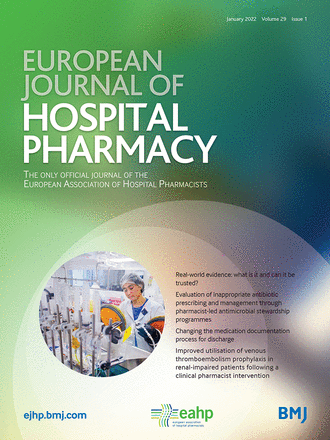 The online first edition of the European Journal of Hospital Pharmacy (EJHP) has published an article that looked at capsule compounding for paediatric patients by comparing the European and the US-approach. In Europe, pharmacists often use a volume-based method whereas, in the USA, the weight-based method prevails. The researchers evaluated the difference between the volume-based method and the weight-based method with 10 mg spironolactone capsules. Six independent batches were made with each technique and their conformity was evaluated with a high-performance liquid chromatography assay. It was concluded that capsule compounding with the weight-based method increases the quality of the resulting formulation. The weight-based method requires knowledge of the galenic parameters of the active pharmaceutical ingredient and excipients but should be preferred to the volume-based method.
The online first edition of the European Journal of Hospital Pharmacy (EJHP) has published an article that looked at capsule compounding for paediatric patients by comparing the European and the US-approach. In Europe, pharmacists often use a volume-based method whereas, in the USA, the weight-based method prevails. The researchers evaluated the difference between the volume-based method and the weight-based method with 10 mg spironolactone capsules. Six independent batches were made with each technique and their conformity was evaluated with a high-performance liquid chromatography assay. It was concluded that capsule compounding with the weight-based method increases the quality of the resulting formulation. The weight-based method requires knowledge of the galenic parameters of the active pharmaceutical ingredient and excipients but should be preferred to the volume-based method.
Read the article HERE
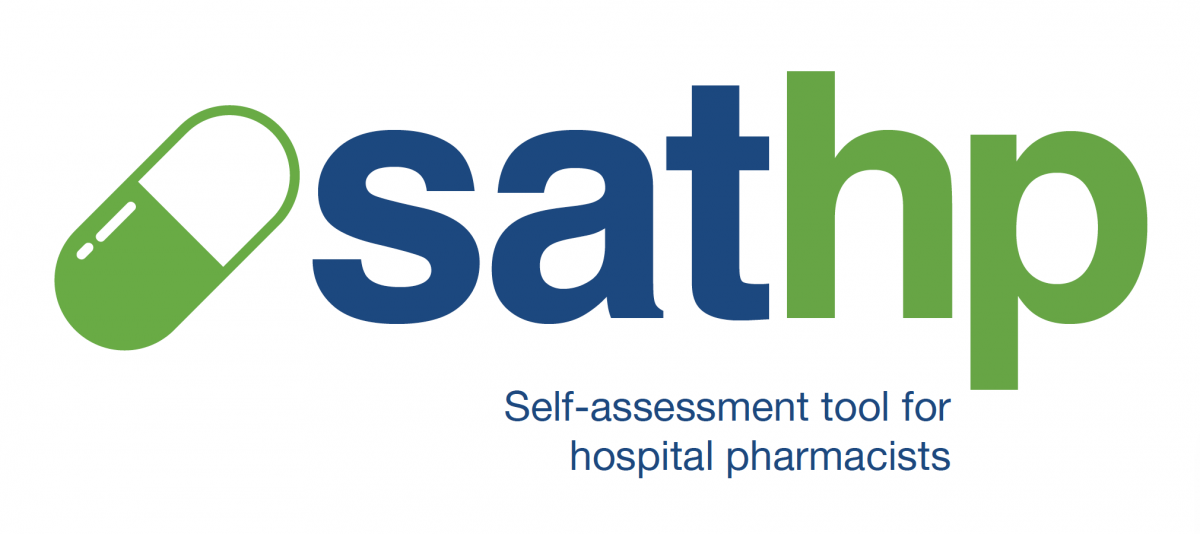 |
[EAHP Statement Corner] |
Have you met EAHP’s Statement Implementation Ambassadors?
To promote the implementation of the European Statements of Hospital Pharmacy at the national level EAHP has teamed up with motivated and enthusiastic hospital pharmacists willing to help their countries and others move towards Statement Implementation, the so call “Implementation Ambassadors”. They act as the primary link between EAHP, their national associations and the implementation activities done within their countries. In case you are curious about the Implementation Ambassador working in your country you can find out more about him/her via the Statement website.
 |
[COVID-19 Updates] |
EAHP’s COVID-19 Resource Centre
To assist its member associations and individual hospital pharmacists in this critical time with the provision of the best possible care for patients, EAHP has decided to gather and make available information on COVID-19 relevant for the hospital pharmacy profession.
Access the Resource Centre HERE
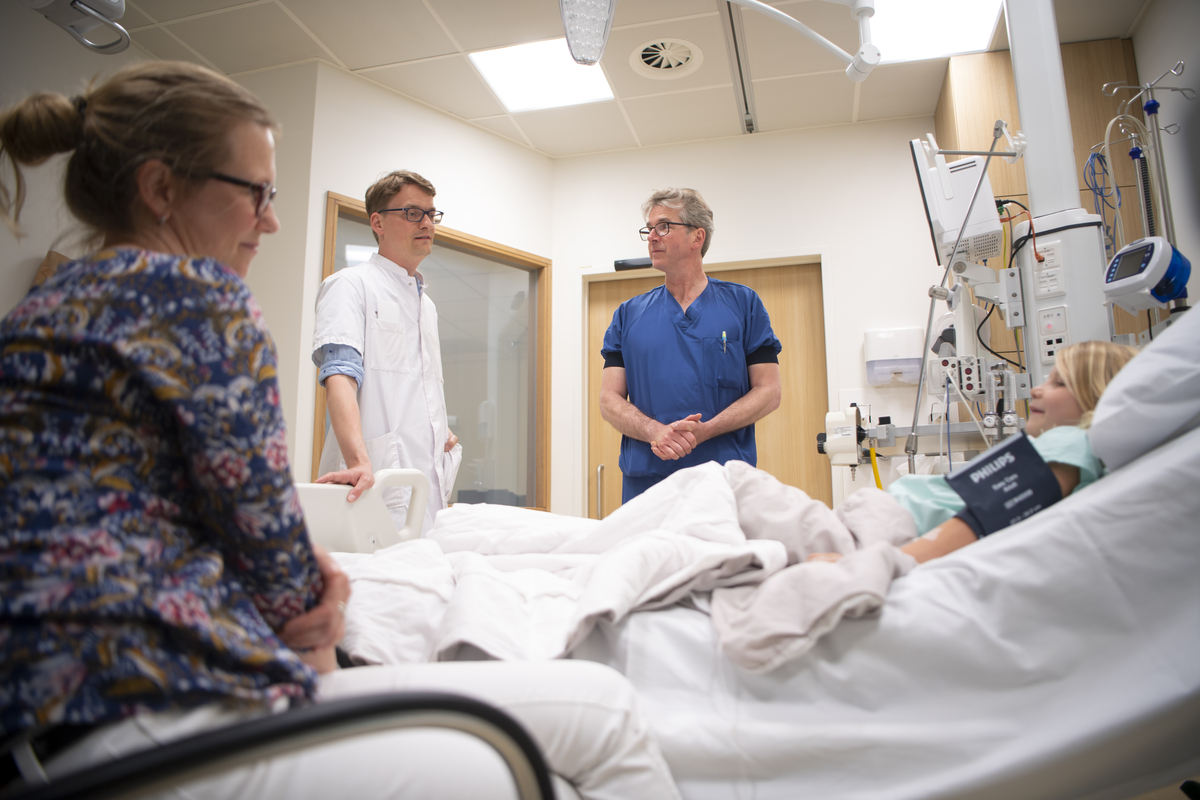 |
[Spotlight] |
EAHP Position Paper on Hospital Pharmacy Specialisation
Hospital pharmacists are the key stakeholders responsible for medication management and safety in the hospital environment, covering both in- and out-patient services and supporting the seamless transition of care for patients moving within the healthcare system. To provide the best treatment for all patients, hospital pharmacists must be able to operate in a complex hospital setting and work collaboratively within multi-disciplinary healthcare teams.
To prepare the hospital pharmacy profession for the future, the European Association of Hospital Pharmacists (EAHP) adopted the European Statements of Hospital Pharmacy in 2014. They express commonly agreed objectives that every European health system should aim for in the delivery of hospital pharmacy services. To further enhance the quality, safety and equity of access to patient care in every European country, EAHP additionally created the Common Training Framework (CTF) project for hospital pharmacy education in Europe. This project not only fosters the further development of hospital pharmacy practice but also seeks to guarantee the access of European citizens to the highest available standard of care and the freedom of movement of the hospital pharmacy profession which is currently not accessible to all.
In June 2021, EAHP's General Assembly adopted a Position Paper on Hospital Pharmacy Specialisation. The position centres around advancing the profession by harmonising the recognition of hospital pharmacy education, enhancing the role of the hospital pharmacist and preparing the profession for future challenges.
To make a difference in medication by advancing the hospital pharmacy profession, EAHP
- calls on the European Commission and the Member States to assist the Association in setting up a CTF through the adoption of a delegated act;
- touches on the need for Member States to recognise the changing role of the hospital pharmacists and further foster their implementation; and,
- underlines the importance of further promoting the uptake of such cross-sector tools inter-sector communication, coordination and multi-disciplinary collaboration in all healthcare facilities should be strengthened.
To adequately address future challenges linked to the ageing society, changing healthcare needs and other unknown factors, like future pandemics, EAHP urges that Member States invest in better workforce planning for the hospital pharmacy profession, including the availability of hospital pharmacy services for all patients of each hospital.
Read EAHP's Position Paper on Hospital Pharmacy Specialisation HERE
|
[Consultations] |
EDQM - European Paediatric Formulary: two draft texts released for public consultation
The European Directorate for the Quality of Medicines & HealthCare (EDQM) has released Issue 4 of Pharmeuropa PaedForm, which contains two texts for public consultation, Simple syrup (preservative-free) and Phosphate 60 mg/mL Oral solution.
Deadline – 31st March 2022
Learn more about the consultation and contribute HERE




